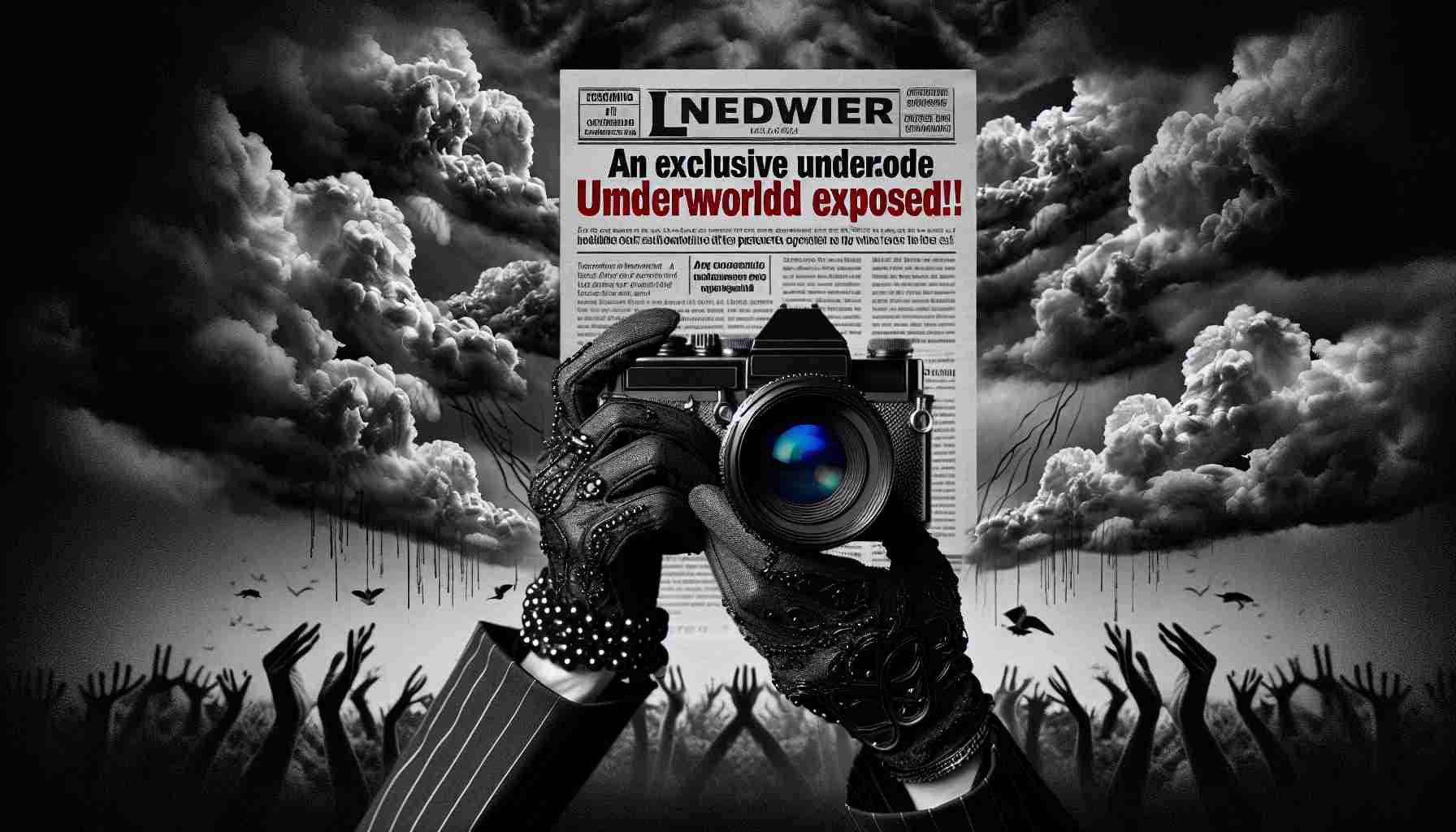Scandal in the World of Celebrity Photography
At 77, Mimi Marchand, known as the “queen of paparazzi,” continues to wield significant influence in France’s celebrity scenes while facing serious legal challenges. She has maintained her connections with powerful figures, including French President Emmanuel Macron and his wife, Brigitte, all while running Bestimage, her own press agency established in 2011.
Marchand’s unique business model relies on acquiring exclusive celebrity photos, often using questionable tactics to sell these images. She has been accused of engaging in manipulative dealings—holding secrets over the heads of the rich and famous. This has led to serious judicial scrutiny, with allegations of extorting money from television presenter Karine Le Marchand.
Court documents reveal that Marchand allegedly demanded €1,600 from Le Marchand to prevent the publication of sensitive photographs. The case highlighted how she reportedly used psychological pressure to ensure compliance. As the investigation unfolds, the judges suggest that her methods have been far from innocent.
Despite her denials and claims of a joke gone wrong, the legal ramifications are mounting. Marchand’s influence and tactics have drawn parallels to the dramatic narratives found in crime series, raising questions about the ethics of her practices in the paparazzi realm. Le Marchand even described her as a friend but admitted to her troubling capacity for manipulation. As the trial approaches, the spotlight shines brightly on the murky tactics of celebrity journalism.
Examining the Cultural and Economic Impact of Celebrity Photography Scandals
The ongoing legal troubles of Mimi Marchand, the so-called “queen of paparazzi,” shine a stark light on the intersection of celebrity culture and ethics in journalism. The ramifications of such scandals extend beyond individual figures; they ripple through the cultural fabric of society and influence the global economy. The commodification of celebrity—which Marchand epitomizes—fuels an insatiable public appetite for exclusive and often invasive content, challenging the notions of personal privacy.
As celebrity journalism increasingly adopts manipulative tactics, it raises critical questions about the ethical responsibilities of those involved. Marchand’s alleged actions exemplify a troubling trend where financial motivations overshadow moral considerations, prompting calls for stricter regulations within media practices. The potential for increased scrutiny may reshape the paparazzi industry, as public backlash grows against invasive celebrity photography. This could lead to new standards or even a shift towards more responsible journalism, emphasizing transparency and ethical approaches to respecting individual privacy.
Moreover, the environmental impact of the celebrity media ecosystem is worth noting. Increased demand for exclusive content drives not only ethical concerns but also the resource-intensive production of media materials. As trends evolve, the industry may see a shift towards sustainable practices, balancing the demands of public engagement with environmental stewardship.
In summary, the scrutiny surrounding Marchand and her practices holds broad implications for society, highlighting the need for a culture of accountability while embracing future trends in responsible media practices.
Behind the Lens: The Dark Side of Celebrity Photography and Its Implications
The Controversy Surrounding Mimi Marchand
The world of celebrity photography is often glamorous, but beneath the surface lies a murky realm of manipulation, extortion, and ethical dilemmas. Mimi Marchand, a prominent figure in this field, has recently come under fire for her controversial tactics and the legal issues surrounding them.
Current Landscape of Celebrity Photography
Celebrity photography has evolved significantly, becoming more competitive and invasive due to the rise of social media. Influencers and aspiring photographers are entering the market, resulting in increased scrutiny of established players like Marchand. Her approach, blending traditional paparazzi techniques with modern digital strategies, has sparked debates about morality and legality.
Legal Implications and Ongoing Investigations
Marchand’s situation is not isolated. The legal ramifications of her alleged actions are part of a broader conversation about privacy rights and the ethics of what constitutes acceptable behavior in celebrity journalism. The investigation into her tactics raises critical questions about the balance between public interest and personal privacy.
Pros and Cons of Paparazzi Culture
Pros:
– Provides fans with a closer look at their favorite celebrities.
– Can generate significant income for photographers.
– Encourages transparency in celebrity behavior, holding them accountable.
Cons:
– Often leads to invasion of privacy and mental distress for celebrities.
– Legal and ethical boundaries are frequently crossed.
– Can contribute to toxic culture surrounding celebrity worship.
Use Cases for Ethical Celebrity Photography
For photographers like Marchand, the line between ethical practices and sensationalism is thin. Here are some recommended ethical use cases:
– Engaging in respectful documentation of public events.
– Prioritizing consent from subjects whenever possible.
– Focusing on stories that highlight the human side of celebrities rather than scandal.
Industry Trends and Future Directions
The celebrity photography landscape is undergoing significant changes:
– An increased push for privacy legislation, which aims to protect celebrities and their families from invasive surveillance.
– Growing use of technology, such as drones and AI, which may lead to new ethical dilemmas.
– A shift toward more responsible journalism, with some paparazzi embracing cooperative relationships with celebrities to tell their stories authentically.
Predictions for the Future of Celebrity Photography
As the trial against Marchand progresses, we may see more stringent regulations in the paparazzi industry. Emerging technologies will likely influence how celebrity photographs are taken, potentially leading to a more ethical approach. Furthermore, public awareness of privacy issues may create a demand for accountability and involvements in how celebrity content is captured and shared.
Conclusion
Mimi Marchand’s position as a key player in the celebrity photography industry highlights crucial discussions about ethics, legality, and privacy. As the landscape evolves, it will be essential to navigate these complexities carefully, finding a balance that respects the rights of individuals while satisfying public curiosity.
For more insights into the shifting dynamics of celebrity culture, visit Hollywood Reporter.
